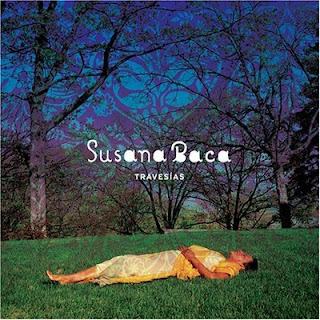
Susana Baca was born in Lima, although she grew up in the small black coastal barrio of Chorrillos, "populated with fishermen and cats," Susana remembers,. She grew up surrounded by music and her mother's good cooking. Señora Baca taught her daughter what she knew of both. "My father played guitar and my mother showed me my first steps - she was dancer, not a singer. I listened to the radio and watched Mexican movies, all those great rumba dancers and Cuban musicians like Pérez Prado and Beny Moré." As a child, she would accompany her mother when she cleaned homes and says that the only way she could keep still was when her mother put on classical music. Her father, who was a driver, was also the barrio's own street guitarist and would often play outdoors with a group of neighborhood musicians. Their instruments were usually guitars and a percussive instrument called the cajón (a wooden box). As world music divas go, Susana Baca is rivalled only by Omara Portuondo and Cesaria Evora. Hers is a gentle but still passionate art. She cuts a graceful figure on stage in her trademark flowing robes. A smile is rarely far from her lips when not singing, and when she is, her eyes are clamped shut as she traces slow abstract arcs with bare feet
 Her newest release chronicles her exploration of oral traditions from Africa, Haiti, France, Ireland, and Italy, in addition to her native Peru. Simple arrangements combined with Susana's distinctive voice translate the essence of each song's sentiment of love and struggle. It is this kind of quiet intensity that pervades her Travesias album. It is a record she describes as a personal dialogue, a collection of intimate moments for the person who is alone and who is in love. The songs are stripped down, quiet, like a late-night conversation
Her newest release chronicles her exploration of oral traditions from Africa, Haiti, France, Ireland, and Italy, in addition to her native Peru. Simple arrangements combined with Susana's distinctive voice translate the essence of each song's sentiment of love and struggle. It is this kind of quiet intensity that pervades her Travesias album. It is a record she describes as a personal dialogue, a collection of intimate moments for the person who is alone and who is in love. The songs are stripped down, quiet, like a late-night conversation
No hay comentarios:
Publicar un comentario